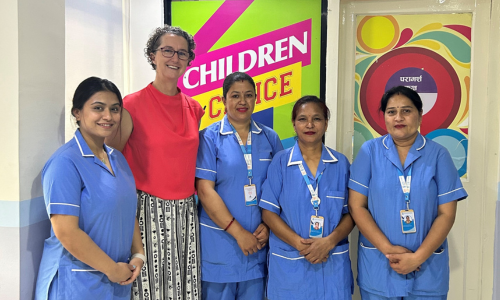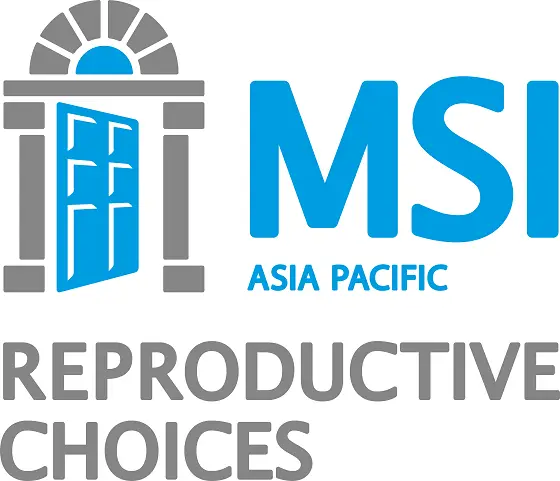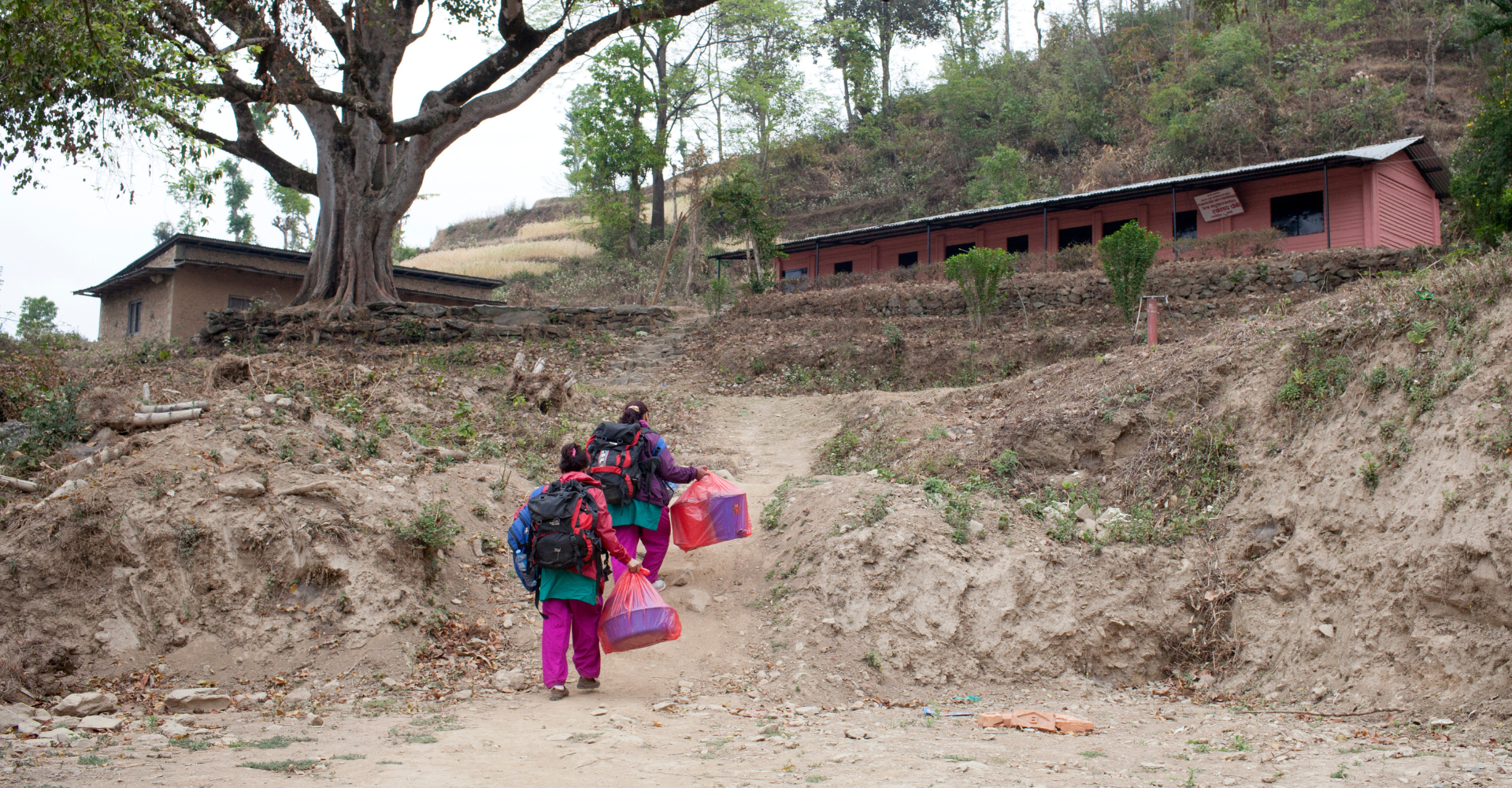MSI Asia Pacific supports MSI Nepal with funding from the Department of Foreign Affairs and Trade, through the ANCP program. Below, Executive Officer Merewyn Foran reflects on her learnings from a recent visit.
Working in global health leadership while based in Melbourne, I deeply value the opportunity to travel to the countries where we work, to see first-hand the unique challenges, strengths and cultural contexts that define MSI’s work around the world, especially in the Asia and Pacific regions.
My recent visit to Nepal was a rich and worthwhile trip. It allowed me to gain a deeper understanding of the commitment of MSI’s staff and other Nepali health professionals, who go above and beyond to deliver essential services despite enormous barriers.
It was fantastic to meet with Nepal-based representatives of the Department of Foreign Affairs and Trade, who are located at the Australian Embassy in Kathmandu, and who are working hard to ensure that livelihoods, health, governance and education remain development priorities.
It was also an honour to be hosted by MSI Nepal staff and partner organisations, who welcomed me wholeheartedly and provided some valuable insights into their work.
MSI is doing important work to support Nepali women and girls, but there’s still much more to be done. Here’s what I learned throughout my visit.
It's a challenging landscape (literally!)
In many countries, we take it for granted that a trip to the GP or hospital is only a short and comfortable car ride away. In Nepal, a visit to a health clinic could be a day’s walk away – or more.
The fact that Mt Everest lies along Nepal’s border might give you an idea of the terrain: much of the country is comprised of steep peaks and descents with villages dotted in between.
MSI Ladies in Nepal trek through mountains and valleys to deliver much-needed contraception to women and girls, and our outreach teams traverse similar terrain. Those in vehicles aren’t guaranteed a smooth ride either: road hazards are common and some can only be negotiated on foot.
While MSI staff reach as many women and girls as possible, there are still many more who – whilst pregnant, with young children, or even children themselves – must compromise their safety and wellbeing to access sexual and reproductive healthcare. Many still can’t access it at all.

MSI is creating sustainable change
I had the privilege of visiting a Public Sector Strengthening site in Khotang District. This is a vital but lesser-understood area of our work: through Public Sector Strengthening, we partner with local public health facilities and workers to support skill-building in sexual and reproductive healthcare, as well as commodity management, facilities management and leadership development.
Through training, one-on-one support and development of important processes, we work to build health systems that continue to offer high-quality healthcare after our departure. Our work in Khotang District has now concluded so that we can commence this work in another high-need location.
We’re proud of this model, which enables us to embed important skills and knowledge in communities, who are naturally experts on their own needs. During my visit, I learned of Khotang public sector health staff who are already onward training their colleagues in neighbouring provinces, passing on skills and knowledge they learned from MSI.
It was also heartening to learn that there is a strong relationship between the MSI Ladies and the Public Sector Strengthening sites, meaning that we can provide comprehensive care to women and girls: for example, a woman who gives birth at the Public Sector Strengthening site can go on to receive ongoing family planning support from a local MSI Lady.
In an environment where it would be easy for work to become ‘siloed’, I was thrilled to learn our teams are working together to fulfill MSI’s mission.
There's urgent work to be done
During my trip, I learned that in Nepal, six women die from cervical cancer every day. This is a needlessly high figure as cervical cancer can be cured if detected early.
Uterine prolapse is also very common, as many women in Nepal need to return to manual labour soon after pregnancy. This condition can cause pain and incontinence, which can have enormous impacts on women’s lives.
While birthing conditions are improving in many areas of Nepal, there is still enormous progress needed to ensure women and babies remain safe during delivery.
While birthing conditions are improving in many areas of Nepal, there is still enormous progress needed to ensure women and babies remain safe during delivery.
During a visit to a health centre, I had a sobering realisation: if I had given birth there, both my daughter and I would likely have died. Despite the commitment of its staff, the centre simply wouldn’t have been able to manage such a complicated birth. Every woman, no matter her location, should be able to give birth safely.
"During a visit to a health centre, I had a sobering realisation: if I had given birth there, both my daughter and I would likely have died. Despite the commitment of its staff, the centre simply wouldn’t have been able to manage such a complicated birth. Every woman, no matter her location, should be able to give birth safely."
A visit to Sindhuli District’s one-stop crisis management centre was also eye-opening. Located within a municipal hospital, this centre provides essential services for people experiencing sexual and gender-based violence.
The team works under incredibly challenging conditions to ensure women can access support and resources, with dedicated staff going above and beyond to provide the support clients need. It was fantastic to learn of the strong relationship between the centre and MSI, as we must continue to tackle the taboo of sexual and gender-based violence at both community and system levels.
The MSI team in Nepal are doing incredible work to deliver essential healthcare, challenge stigma and support systems change. It was a privilege to see their work first-hand, and I look forward to seeing their progress when I return.
This is just one example of the incredible work MSI is doing to strengthen health systems worldwide. Read more about our impact here.
This work is made possible by the generous support of our donors and partners. Consider supporting us to build a world where every child is by choice, not by chance.

